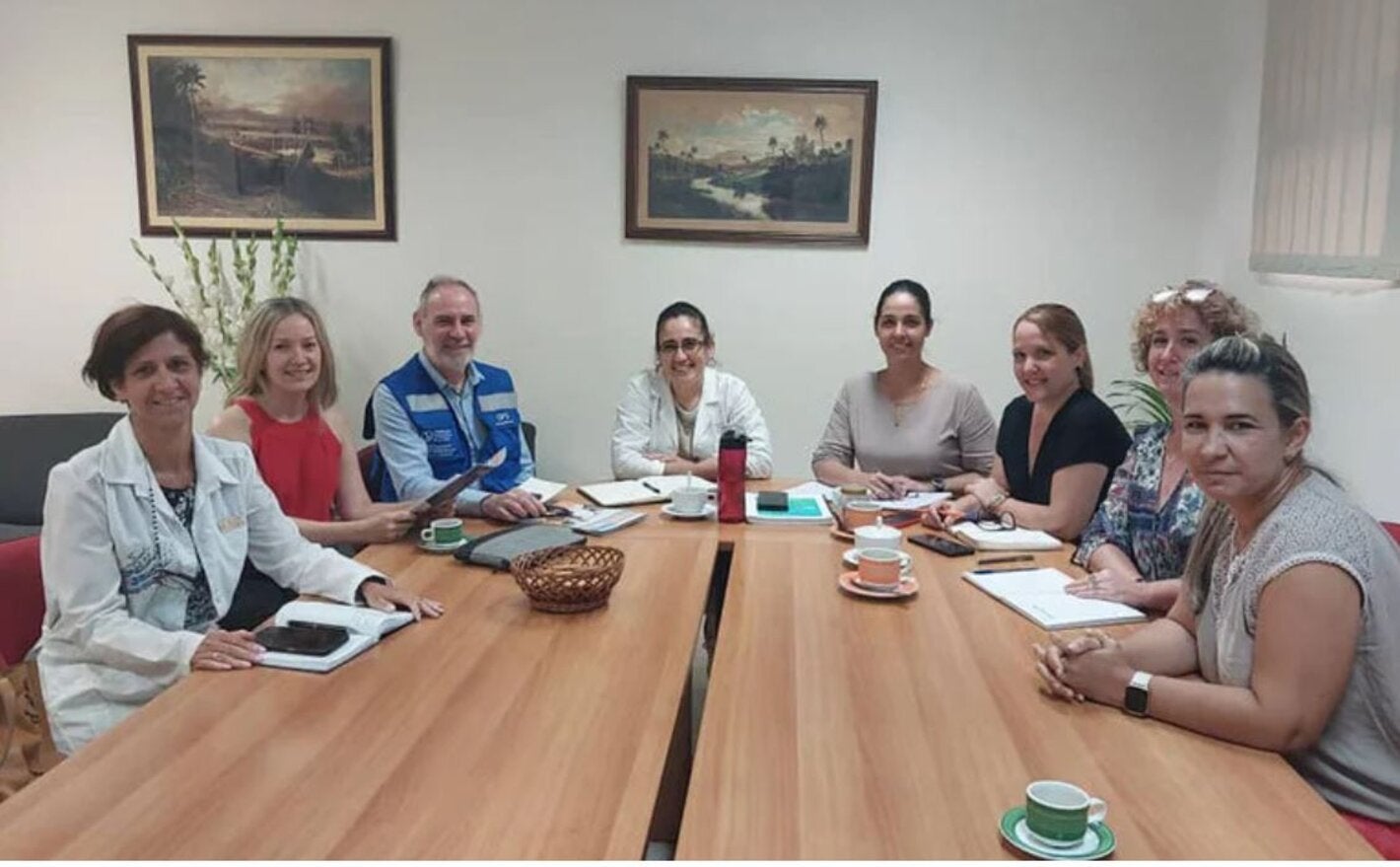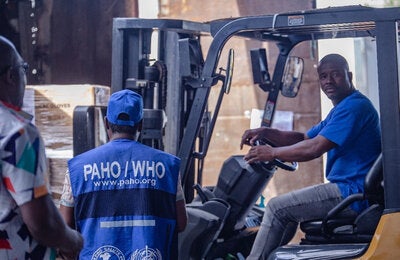
Montevideo, July 26, 2024. Health is the result of a complex interaction between genetic and socio-environmental factors. “Characterizing these genetic variations in our populations makes it possible to personalize care for people who have certain predispositions and to manage the environmental factors that can 'trigger' them,” said the director of Cuba's National Center for Medical Genetics, Dr. Beatriz Marcheco.
The specialist explained that it is necessary to move towards a new health care paradigm that focuses not so much on diseases but, above all, on prevention focused on the individual and his or her interaction with the environment. “In the era of the genome, a model of personalized and precision medicine has begun to emerge in which medical diagnoses and treatments are adjusted to the characteristics of individuals and their sociodemographic, cultural and environmental contexts.” According to the expert, this approach makes it possible to achieve more effective and sustainable solutions.
Prevention from pregnancy for a healthy life
The study of the genome, together with the application of imaging techniques, clinical examinations and biographical and social information of the individual, constitute powerful tools for personalized decision-making in clinical practice, as well as new preventive and therapeutic possibilities.
“The impact of the interventions carried out from the medical genetics services in Cuba in terms of children's health can be assessed through the reduction, by 80%, of infant mortality due to congenital defects in the last 40 years,” Marcheco pointed out. “In recent years, we have been learning that everything that happens months before the conception of a new individual (particularly what concerns maternal health and its preparation for pregnancy), throughout pregnancy and in the first 1000 days of life, has a significant influence on the diseases that will be suffered in adulthood and even on the life expectancy of an individual.
She also expressed that “In the current conditions and considering the perspectives offered by new genetic technologies in terms of anticipating individual, family and population risks for certain diseases, it is even more necessary to carry out integrated research that considers the role of genetic factors, but also the influence of non-genetic factors... for the development of effective preventive strategies”.
Analyzing longevity from a gender perspective
The director of Cuba's National Center of Medical Genetics explained that the two fundamental sociodemographic variables, which affect all other processes related to human populations, are sex and age.
“Women win, by far, the 'marathon' of longevity.” However, Marcheco noted that men have better overall functioning and are healthier. “This may be because women cope better with age-related diseases (it is not clear how they do this) whereas, at older ages, men have a higher risk of dying from them. Men who survive to very old ages are, then, relatively healthier.” This situation explains why most long-lived people are women.
People's family relationships and social ties, educational level, participation or not in the labor market and the type of occupation or job they have, place of residence and environmental conditions, diet, physical activity, and keeping an active mind are also fundamental for healthy longevity.
Regarding the impact of gender on health, the director said that “In the case of women in our societies, patriarchal hegemony places them at a clear disadvantage. The overload in domestic tasks and caring for other people are aspects that the specialist points out as factors that affect the availability of time to dedicate to themselves, to enrich their social life and to take care of their health. “Gender violence, harassment, and underestimation of women are frequent facts, often silenced and that condition their physical and spiritual wellbeing. Adolescent pregnancy and school dropout among girls and adolescents are social problems that condition unfavorable health situations,” she added.
Challenges
Inequity, difficulties in accessing quality health services and the deficit of trained personnel in the public health sector are some of the challenges Marcheco identifies for quality health care.
In particular, in relation to medical genetics services, she said that “there is a low level of development and a high shortage of trained professionals”. She also referred to the need for political will to prioritize the implementation of universal programs that improve the genetic health of populations and contribute significantly to the prevention of congenital defects and chronic non-communicable diseases.
She also emphasized the need to focus actions on the most vulnerable populations. “We have learned that our main reserves are in health education and the empowerment of people with the care of their health, as well as their active and conscious participation in that process... The main contribution that the center can make is to contribute to the training of human resources in the field of genetics in the region with that approach, promote networking and the development of resilient strategies that will allow us to provide basic services in the field of medical genetics for everyone in the region, prioritizing the most disadvantaged groups, among which are women themselves”.
A history of working with OPS
The bond between Cuba's National Center of Medical Genetics and the Pan American Health Organization (PAHO) is a long-standing one that has been strengthened over the years.
In particular, Marcheco highlights the coordinated work on women's health issues, attention to genetic neonatal care, prevention of congenital defects, development of good practice procedures for prenatal and postnatal genetic diagnosis services, the development of continuing education activities for human resources, research on longevity with a gender perspective, the implementation of surveillance systems for health emergencies such as Zika in the region, education in genetics for the population, among others.
Cuba's National Center of Medical Genetics has served as a WHO/PAHO Collaborating Center. The center's director expressed the interest and expectations of being designated as such again in the near future.
Finally, Marcheco referred to the relevance of sharing knowledge among the countries of the region and expressed that “We feel that more than countries, we are communities with identities that, although our own, are very similar to each other. This commits us and motivates us to strive to do more to guarantee health for all. From the most universal of Cubans, the national hero José Martí, we learned that helping those in need is not only part of our duty but also part of our happiness”.



